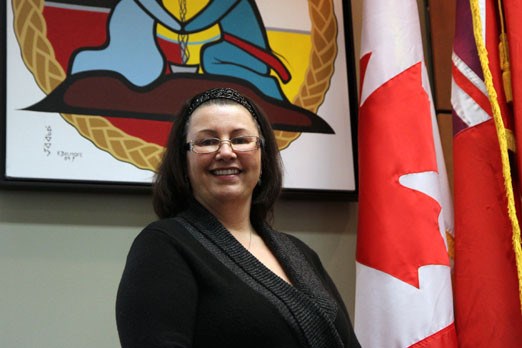THUNDER BAY – A lawyer for Anna Gibbon, a local Justice of the Peace found to have committed misconduct, argued she should be given the chance to learn from her mistakes during the final day of hearings in the case on Tuesday.
A three-person panel, formed from Ontario’s Justices of the Peace Review Council, found in February that Gibbon had committed misconduct by intervening in her son’s Highway Traffic Act proceeding.
Gibbon’s actions included inviting the Justice of the Peace (JP) hearing the case for dinner on the same day her son was to appear in court, asking the Regional Senior Justice of the Peace to have the charge against her son withdrawn or stayed, and using a pass to file paperwork for the case in a private area.
Gibbon is alleged to have asked, “Do you even know who I am?” after calling the prosecutor to discuss the case on behalf of her son.
The panel could recommend Gibbons’ removal to the Attorney General, suspend her without pay for up to 30 days, or order a number of smaller penalties including a warning, an apology, or a suspension with pay.
Eugene Bhattacharya, counsel for Gibbon, said “things got completely off track” with the case involving her son, but pointed to mitigating factors including a strong record as JP before this complaint.
Gibbon acknowledged many of the allegations against her, and the fact she used her position inappropriately, he said.
“She’s accepted your findings” Bhattacharya said “She’s now trying to demonstrate she can learn from this and not repeat this behaviour in the future.”
Judge Timothy Lipson asked whether Gibbon truly accepted the panel’s conclusions, noting it had in several cases found other witnesses who contradicted Gibbon to be more credible.
“You say she’s accepted the findings of the panel – I still don’t know what findings she’s accepted,” he said. “It’s not spelled out in the letters of apology exactly what she’s acknowledging.”
“She’s not trying to change her story just for the benefit of the panel,” Bhattacharya responded, but is “acknowledging” the panel’s findings and attempting to learn from them.
Bhattacharya also submitted the likelihood of reoffending was low, saying the circumstances involving her son were specific and unlikely to happen again.
Presenting counsel Linda Rothstein took issue with that argument, saying the issue is whether Gibbon understands the importance of separating her personal interests and her work.
Rothstein has argued failing to appropriately discipline Gibbon could damage public faith in the judicial system, and said her draft letters of apology don’t convincingly show acknowledgement of wrongdoing or an understanding of the seriousness of her actions.
Bhattacharya also urged the panel to consider Gladue principles in the case.
Gibbon has argued her experiences as an Indigenous person in the community heightened her concerns over how her son was being treated by the justice system.
“This is not being put forward as an excuse, or as justification,” Bhattacharya said. “In some respects, it brings us to an understanding as to her honour’s overreaction.”
In an email to the Regional Senior Justice of the Peace submitted into evidence in the case, Gibbon wrote that her son “has been horribly discriminated against in this community and has a fear of speaking with people in positions of authority.”
Bhattacharya also reiterated that Gibbon commonly invited visiting JPs for dinner, and had invited another visiting JP on the same night as the one supposed to hear her son’s case. She will likely no longer do that, he said.
It’s unclear whether Gibbon would return to Provincial Offences Act court in Thunder Bay, even if she is not reinstated.
She was excluded from POA cases until the hearing into her conduct was resolved, and has presided virtually at the Ontario Court of Justice in Thunder Bay.
She has since requested accommodation to not return to court in person after being diagnosed with Leukemia in 2018 and now undergoing chemotherapy, making her more vulnerable to COVID-19.
The panel reserved its decision on disposition, leaving Gibbon’s fate unclear for now. There is no timeline for when its decision will be released, though Lipson said that would happen as quickly as possible.
Gibbon was appointed as Justice of the Peace for the Ontario Court of Justice in 2013 and previously served as the city of Thunder Bay’s first Aboriginal liaison.
The hearing into her conduct was convened in January 2021 and concluded in November.
